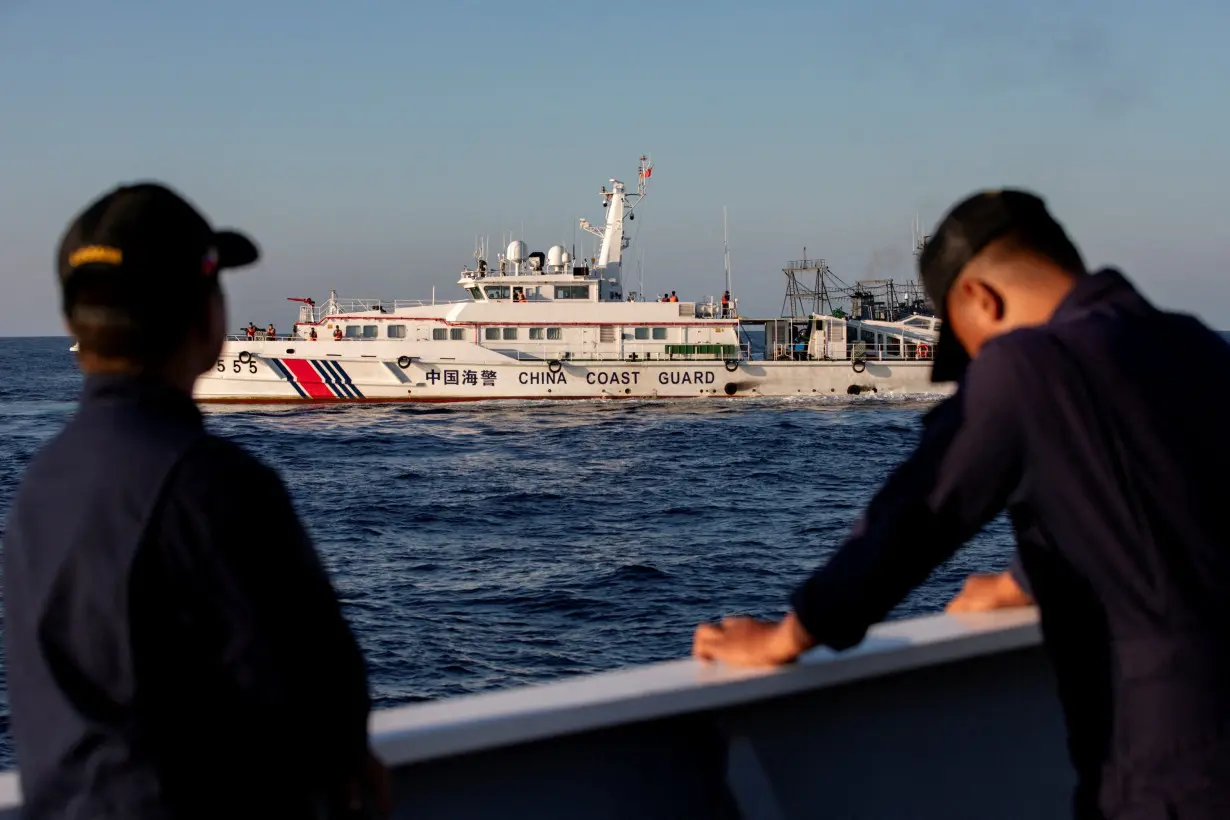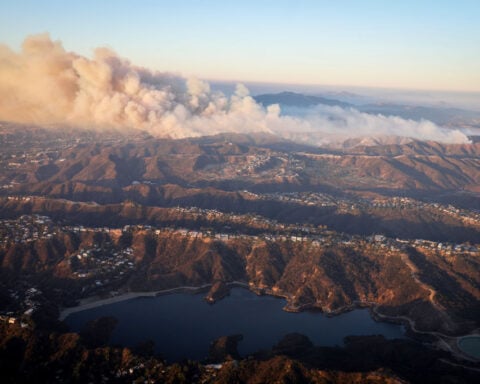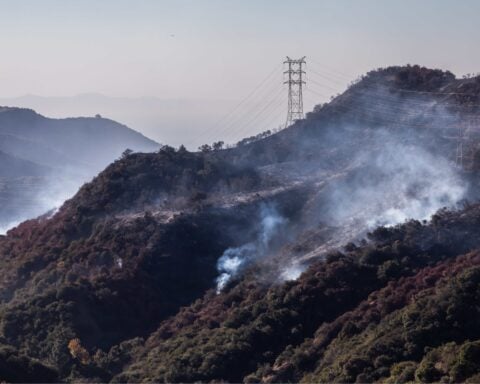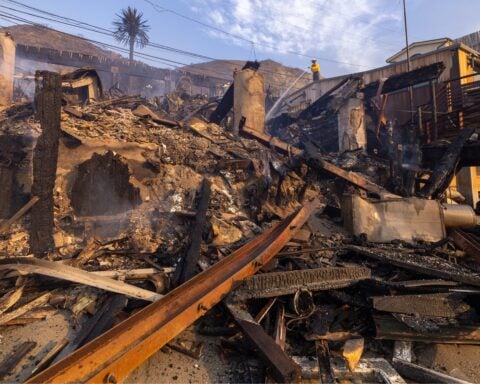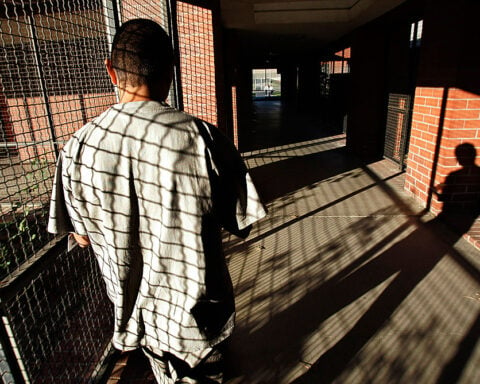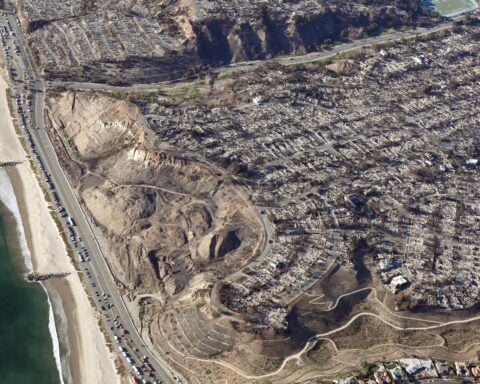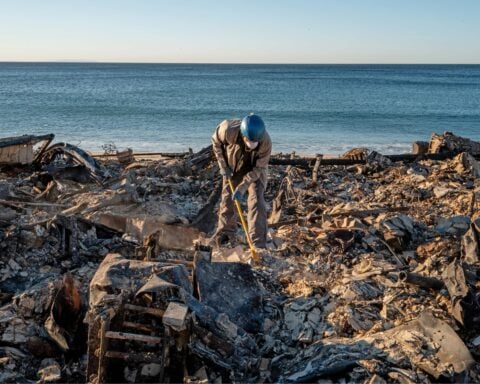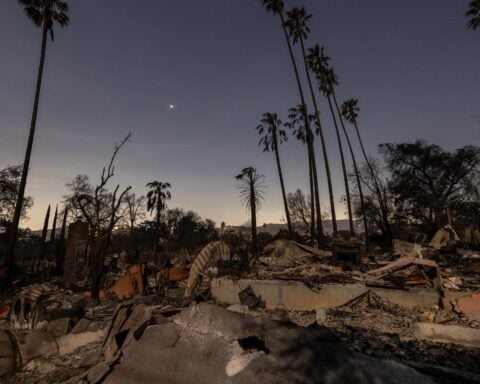By Michael Martina and David Brunnstrom
WASHINGTON (Reuters) - The United States is looking to bolster the capabilities of the Philippines to operate lawfully in its waters, a senior White House official said on Wednesday, ahead of a meeting of defense and foreign ministers of the two countries.
The senior U.S. diplomat for East Asia, Daniel Kritenbrink, meanwhile, welcomed a recent agreement between the Philippines and China to ease tensions in their dispute in the South China Sea, but said the key would be implementation.
The Philippines, a U.S., ally, and China, the main U.S. rival in the Indo-Pacific, have sparred repeatedly at sea this past year, but Manila said this week the two sides had reached a "provisional arrangement" to ease tensions and manage differences.
"We've welcomed the diplomacy that they've conducted," Kritenbrink told the American Enterprise Institute think-tank in reference to Manila. "I think the focus will be on implementation. We're all watching very carefully."
U.S. Secretary of State Antony Blinken and Defense Secretary Lloyd Austin will be in Asia this week and next to reassure allies and partners of U.S. support at a time when the November U.S. presidential election casts uncertainty over Washington's foreign policy.
They are expected in Manila for talks with their Philippines counterparts and with President Ferdinand Marcos Jr on Monday and Tuesday.
Mira Rapp-Hooper, senior director for East Asia at the White House National Security Council, told the think-tank event that Washington was looking to boost practical support for Manila.
"What we are looking to do across the board ... is to bolster our Philippine ally's capabilities and abilities to continue to operate lawfully in its waters and just stand up to the types of challenges that has faced in recent months."
Ely Ratner, the senior Pentagon official for the Indo-Pacific region, said the U.S. was "on track to engage in some unprecedented support for the modernization of the ... armed forces of the Philippines."
He said the two sides would discuss a security assistance road map and added that they were now in a position to expand discussions about the use of four new military locations to which the U.S. has gained access under their 2014 Enhanced Defense Cooperation Agreement (EDCA).
He said "some historic announcements" were being prepared about U.S. support for the Philippines, but did not elaborate.
Three of the new EDCA sites face north towards democratically governed Taiwan, which Beijing claims as its own territory, and the other is near the Spratly Islands, which China also claims, in dispute with several other countries, including the Philippines.
(Reporting by David Brunnstrom, Michael Martina and Idrees Ali; editing by Mark Porter and Mark Heinrich)

 Italy, Albania, UAE sign deal for energy subsea interconnection
Italy, Albania, UAE sign deal for energy subsea interconnection
 European shares advance as bond yields ease; soft inflation powers UK stocks
European shares advance as bond yields ease; soft inflation powers UK stocks
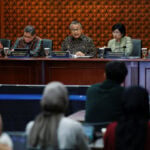 Bank Indonesia delivers surprise rate cut to support growth
Bank Indonesia delivers surprise rate cut to support growth
 Novak Djokovic breaks a tie with Roger Federer for the most Grand Slam matches in tennis history
Novak Djokovic breaks a tie with Roger Federer for the most Grand Slam matches in tennis history
 China's RedNote: what you need to know about the app TikTok users are flocking to
China's RedNote: what you need to know about the app TikTok users are flocking to
 British author Neil Gaiman denies ever engaging in non-consensual sex as more accusers come forward
British author Neil Gaiman denies ever engaging in non-consensual sex as more accusers come forward
